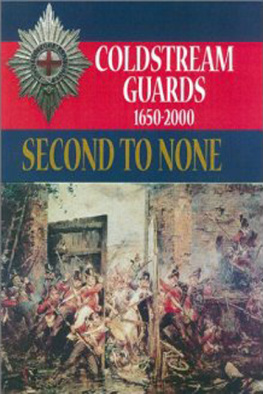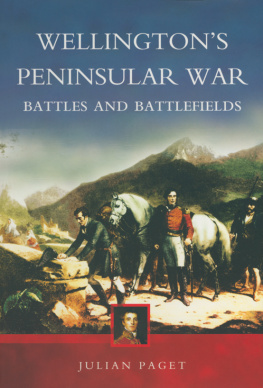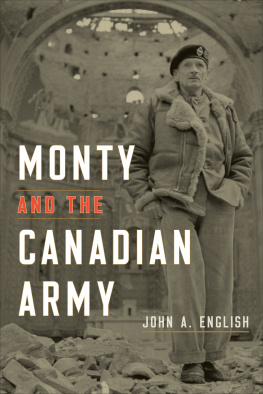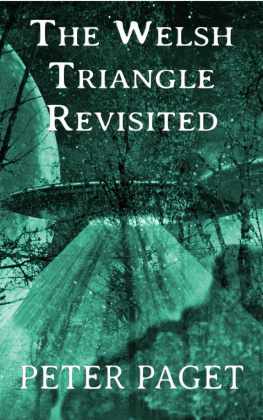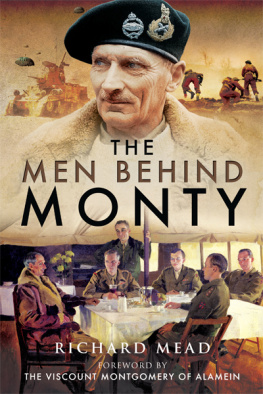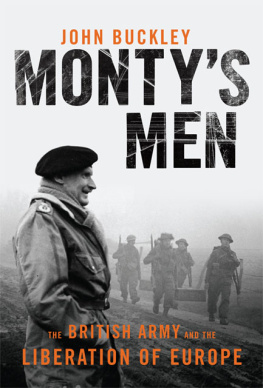
First published in Great Britain in 2008 by
Pen & Sword Military
an imprint of
Pen & Sword Books Ltd
47 Church Street
Barnsley
South Yorkshire
S70 2AS
Copyright Julian Paget, 2008
ISBN 978 18441 5810 2
The right of Julian Paget to be identified as Author of this Work has been
asserted by him in accordance with the Copyright, Designs and Patents Act
1988.
A CIP catalogue record for this book is
available from the British Library.
All rights reserved. No part of this book may be reproduced or transmitted
in any form or by any means, electronic or mechanical including photocopying,
recording or by any information storage and retrieval system, without
permission from the Publisher in writing.
Typeset in Palatino Linotype by
Lamorna Publishing Services.
Printed and bound in England by Biddles Ltd
Pen & Sword Books Ltd. incorporates the imprints of
Pen & Sword Aviation, Pen & Sword Maritime, Pen & Sword Military,
Wharncliffe Local History, Remember When Publications,
Pen & Sword Select, Pen & Sword Military Classics and Leo Cooper.
For a complete list of Pen & Sword titles please contact
PEN & SWORD BOOKS LIMITED
47 Church Street, Barnsley, South Yorkshire, S70 2AS, England
E-mail: enquiries@pen-and-sword.co.uk
Website: www.pen-and-sword.co.uk
Contents
Maps and Diagrams
Paget Coat of Arms
Norway
Southern Norway
The Three D-Day Plans
Preface
The achievements of great men are part of our history, particularly if they have themselves contributed to that history. This certainly applies to my father, who played a significant part in the Second World War. But he was a man of exceptional modesty, and he firmly refused to write his own memoirs, or allow anyone else to do it. He was determined not to join The War of the Generals, with each setting out to promote their own claim to fame.
As a result, little has been written about his achievements, and there are gaps in the records which could and should be filled from his diaries, letters and papers, and I believe that this should now be done. This book is an attempt to fill some of those gaps, without letting it become either a biography or memoirs. My father kept a personal diary throughout the war, which provides much previously unpublished material.
This book is very much a broad brush picture, with emphasis on the matters that are particularly relevant to my father, and on which he has something of interest to contribute. On this basis, four subjects are given particular prominence; the Norwegian Campaign of 1940, when he commanded the ill-fated expedition to Andalsnes; the planning of D-Day, in which he played a significant, but largely unrecognized, role; the training of 21st Army Group, which was possibly his greatest achievement; and finally, his crusade for the teaching of citizenship which is now so relevant, sixty years on.
In accordance with my father's wishes, I have tried to avoid any criticism of others, or to cause controversy. I have not sought to resolve the rights and wrongs of various controversial issues in which he was involved, but have stated the situation as seen by my father at the time, and have left it to readers to make their own judgements.
It is difficult for a son to write objectively about his father, but in my case, it is made easier, first, because my father's achievements speak for themselves, and second, because the picture is completed by the opinions of many others.
Julian Paget
Foreword by General Sir Robert Pascoe KCB MBE
I once spent just over an hour in the company of General Sir Bernard Paget. It was the summer of 1952 and, as a private National Service soldier and then an officer cadet at Sandhurst, I had been in the Army for less than two years. He was a General with forty years service behind him, including battle and command experience in two world wars involving him in many important decisions. Needless to say, I was somewhat overawed by the occasion.
We took tea together as he interviewed me to see if I was suitable to be commissioned into the Regiment of which he was the Colonel, the Oxfordshire and Buckinghamshire Light Infantry (43rd and 52nd). I didn't think the interview went very well, and if anyone had told me then, that some fifty years later, I, as the senior surviving officer of my old Regiment, would be invited to write the Foreword in a book about his life and times, I would not have believed him!
During the Second World War Bernard Paget made a major contribution to the outcome of the war, and greatly improved the training and the reputation of the British Army. Not for nothing has he been described as the man who did more to improve the training of the British soldier than anyone since Sir John Moore in the early 1800s.
In the 43rd and 52nd we all respected General Paget as our outstanding senior officer, but his service to the country has not been widely recognized. He was, of course, awarded many decorations and medals, he was the country's senior serving general and, in his retirement, he became Governor of The Royal Hospital, Chelsea. But few people know how close he came to leading the British Army, which he had trained so well, onto the beaches of Normandy in Operation Overlord in June 1944.
This prize command was taken from Paget's grasp and given to Montgomery, a decision which General Brooke, the CIGS, admits in his diaries caused him much anxiety at the time, because of his great personal admiration and affection for him. Many a man would have been bitter and resentful at this blow, but Paget never expressed his disappointment, and got on with the alternative job he was given in the Middle East.
After the war, Paget decided not to publish any diary or memoir, and deliberately avoided the word games entered into by many of his contemporaries. Now, in this book, Julian Paget, with unique access to his father's papers and diaries, and several military history books already published, sets out for us a clear picture of a great man, which, while doing justice to his father's career, does not betray the latter's determination to avoid raising issues that he thought were best left alone. He does military historians a great service by throwing light on his father's experiences and opinions during many momentous years.
This is an interesting and revealing account of a professional soldier's career, and his views during a critical time in our nation's history. It also shows Bernard Paget in a light which does him the full credit to which he was justly entitled.
Robert Pascoe.
Late The Oxfordshire and Buckinghamshire Light Infantry (43rd and 52nd) and The Royal Green Jackets

Chapter 1
Early Years (1887-1914)
I'm going to be a soldier too.
(Bernard, aged 12)
It was June 1899, and Oxford University was preparing for the ancient ceremony of Encaenia, when honorary degrees are conferred on outstanding national figures. The Dean of Christ Church, one of the leading Oxford colleges, was my grandfather, Francis Paget, and he had some very distinguished guests staying with him at the Deanery for the occasion. They were headed by the Duke and Duchess of York (the future King George V and Queen Mary), and with them was Field Marshal Lord Kitchener, Commander-in-Chief of the British Army and a national hero.


